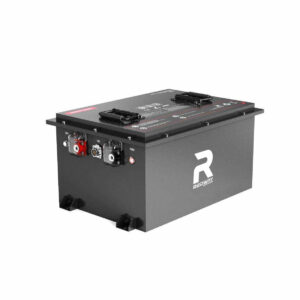What Are the Key Features of China’s Golf Cart Battery Factories?
China’s golf cart battery factories specialize in lithium-ion and LiFePO4 batteries, offering voltages from 36V to 72V with capacities ranging from 56Ah to 200Ah. These facilities prioritize high energy density, long cycle life (often exceeding 3,000 cycles), and integrated BMS (Battery Management Systems) for safety. Customization options, bulk production capabilities, and compliance with international certifications like CE and UN38.3 are standard.
How Do Chinese Factories Ensure Quality in Golf Cart Batteries?
Leading manufacturers implement automated production lines, strict quality control protocols, and third-party testing. For example, facilities use precision welding for cell connections and conduct thermal stability tests to ensure performance under extreme temperatures. Many factories also provide 5–8-year warranties, reflecting confidence in product durability.
To further guarantee reliability, advanced factories employ X-ray inspection systems to detect internal cell defects and AI-powered voltage monitoring during formation cycles. Environmental stress testing simulates years of vibration and shock exposure in just weeks. Some facilities even use argon-filled welding chambers to prevent oxidation in battery terminals, ensuring consistent conductivity over thousands of charge cycles.
| Testing Protocol | Purpose | Standard |
|---|---|---|
| Thermal Cycling | Validate performance between -20°C to 60°C | IEC 62660-2 |
| Crush Test | Assess short-circuit prevention | UN38.3 |

Which Lithium Battery Technologies Dominate the Market?
LiFePO4 (Lithium Iron Phosphate) batteries dominate due to their thermal stability, low self-discharge rates (≤3% monthly), and compatibility with golf cart power demands. Some factories offer 24S1P configurations for 72V systems, optimizing voltage consistency and energy output for hilly terrains or extended runtime.
What Pricing Strategies Do Chinese Suppliers Use?
Prices are negotiable based on order volume, with MOQs starting as low as 5 units for 38V 105Ah models. Bulk orders (100+ units) often receive 15–20% discounts. For instance, a 48V 160Ah LiFePO4 battery pack typically costs $800–$1,200 per unit, including BMS and waterproof casing.
Seasonal promotions frequently align with trade show periods (March-April and September-October), offering free accessory kits or extended warranties. Some suppliers provide progressive pricing tiers—for example, 8% discount for 50 units, scaling to 18% for 500+ units. Raw material cost fluctuations (particularly lithium carbonate prices) may trigger quarterly price adjustments, though many factories lock quotes for 30-45 days upon deposit.
| Battery Model | Capacity | Bulk Discount Threshold |
|---|---|---|
| 48V 100Ah | 5.12kWh | 50 units |
| 72V 200Ah | 14.4kWh | 20 units |
How Do Export Logistics Work for Golf Cart Batteries?
Factories handle certifications (IEC 62133, RoHS) and shipping via air or sea freight. Batteries are packed in UN-approved crates with shock-absorbent materials. Delivery timelines range from 15 days (air) to 45 days (sea), with suppliers often managing customs clearance and documentation.
Expert Views
China’s golf cart battery sector thrives on vertical integration—from cell production to BMS design,” says a Redway battery engineer. “Innovations like modular designs allow users to replace individual cells, reducing long-term costs. However, buyers should verify cycle life claims through independent lab reports, as actual performance can vary by 10–15% depending on usage patterns.”
FAQ
- Q: What is the average lifespan of a LiFePO4 golf cart battery?
- A: 8–10 years with proper maintenance, outperforming lead-acid batteries by 3×.
- Q: Can these batteries integrate with solar charging systems?
- A: Yes, most support 100–200V solar input via compatible charge controllers.
- Q: Are custom voltage configurations available?
- A: Factories often provide 12V increments between 36V–96V, tailored to specific cart models.
